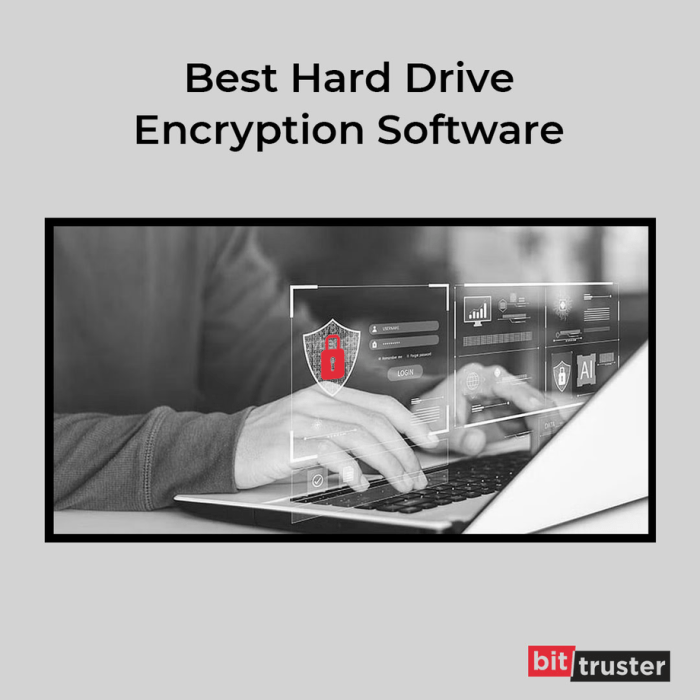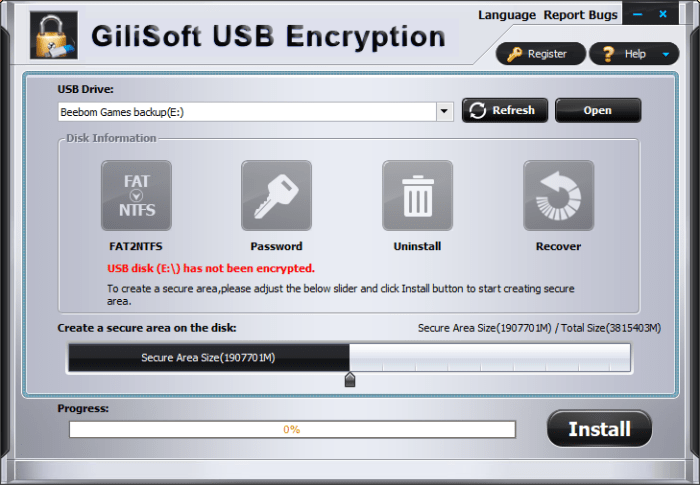In today’s digital landscape, data security is paramount. Protecting sensitive information stored on your hard drive is crucial, and hard disc encryption software provides a robust solution. This comprehensive guide delves into the world of hard drive encryption, exploring its various aspects, benefits, and considerations. We’ll cover different types of encryption, software options, and frequently asked questions to equip you with the knowledge to make informed decisions about securing your data.

Source: justpaste.it
Understanding Hard Drive Encryption
Hard drive encryption is the process of converting readable data into an unreadable format, also known as ciphertext. This ciphertext can only be accessed with a decryption key, effectively safeguarding your information from unauthorized access. This is particularly crucial for sensitive data like financial records, personal identification information (PII), intellectual property, and confidential business documents. The level of security offered depends on the encryption algorithm used and the strength of the key.

Source: beebom.com
Types of Hard Drive Encryption, Hard disc encryption software
- Full Disk Encryption (FDE): This encrypts the entire hard drive, including the operating system and all data. It’s the most comprehensive form of protection, offering the highest level of security. Examples include BitLocker (Windows), FileVault (macOS), and VeraCrypt.
- File-Level Encryption: This method encrypts individual files or folders, allowing you to selectively protect specific data. While less comprehensive than FDE, it’s useful for encrypting sensitive files within a larger, unencrypted system. Popular options include 7-Zip with AES encryption and various cloud storage providers’ built-in encryption.
- Self-Encrypting Drives (SEDs): These hard drives have built-in encryption hardware, meaning the encryption and decryption processes occur at the hardware level. This offers faster performance compared to software-based encryption and is generally considered more secure against certain types of attacks.
Choosing the Right Hard Disc Encryption Software
Selecting the appropriate encryption software depends on your specific needs and technical expertise. Consider the following factors:
Key Features to Consider:
- Encryption Algorithm: AES (Advanced Encryption Standard) is the most widely used and generally considered the most secure algorithm. Look for software that supports AES-256 bit encryption for the highest level of protection.
- Ease of Use: Some software is more user-friendly than others. Consider your technical skills when choosing a solution. A simple, intuitive interface is beneficial for non-technical users.
- Platform Compatibility: Ensure the software is compatible with your operating system (Windows, macOS, Linux). Some software supports multiple platforms, offering flexibility.
- Key Management: How the encryption keys are managed is crucial. Strong password protection, key recovery options, and secure key storage are essential features.
- Performance Impact: Encryption can impact system performance. While modern encryption algorithms are optimized for speed, there will still be some overhead. Consider the performance trade-off when making your decision.
- Open Source vs. Proprietary: Open-source software allows for community scrutiny and independent verification of its security. Proprietary software may offer more features and support, but the code is not publicly available for review.
Popular Hard Disc Encryption Software Options
Several reputable software options are available for hard drive encryption. Here are a few examples:
- BitLocker (Windows): Built-in full-disk encryption for Windows operating systems. Offers strong security and integration with the OS.
- FileVault (macOS): Apple’s built-in full-disk encryption for macOS. Provides a seamless and user-friendly experience.
- VeraCrypt: A free, open-source, and cross-platform disk encryption software. Known for its robust security and flexibility.
- LUKS (Linux Unified Key Setup): A standard for disk encryption in Linux distributions. Offers strong security and interoperability between different Linux systems.
Security Best Practices
Even with strong encryption software, following best practices is essential for maintaining data security:
- Strong Passwords: Use long, complex passwords that are difficult to guess or crack. Consider using a password manager to generate and store strong passwords securely.
- Regular Updates: Keep your encryption software and operating system updated with the latest security patches to address any vulnerabilities.
- Secure Key Management: Protect your encryption keys diligently. Never share them with anyone, and use a secure method for storing or recovering them if needed.
- Physical Security: Protect your computer from physical theft or unauthorized access. This includes securing your device and controlling access to it.
- Data Backup: Regularly back up your encrypted data to a separate location. This safeguards against data loss due to hardware failure or other unforeseen events.
Frequently Asked Questions (FAQ)
- Q: Is hard drive encryption really necessary? A: The necessity of hard drive encryption depends on the sensitivity of your data. If you store sensitive personal or financial information, or confidential business data, encryption is highly recommended.
- Q: How does hard drive encryption affect performance? A: Modern encryption algorithms are optimized for speed, but there will still be a slight performance impact. The extent of the impact depends on the encryption method, hardware, and software used.
- Q: What happens if I forget my encryption password? A: This depends on the software and your key recovery options. Some software allows for password recovery, while others do not. It’s crucial to choose a solution with a robust key recovery mechanism.
- Q: Can I encrypt a single file instead of the entire drive? A: Yes, you can use file-level encryption to protect individual files or folders. This is less comprehensive than full-disk encryption but still provides a degree of protection.
- Q: Is it safe to use free hard drive encryption software? A: Many reputable free and open-source options are available. However, it’s essential to research the software thoroughly and ensure it’s from a trusted source.
Conclusion
Hard drive encryption is a critical aspect of data security in today’s digital world. Choosing the right software and following best practices can significantly reduce the risk of data breaches and protect your sensitive information. Consider your needs, technical expertise, and the sensitivity of your data when selecting an encryption solution.
References: Hard Disc Encryption Software
Ready to secure your data? Choose the right hard drive encryption software today!
FAQ Overview
What is the difference between full-disk encryption and file-level encryption?
Full-disk encryption protects the entire hard drive, while file-level encryption only protects specific files or folders.
How does hard disc encryption impact system performance?
Encryption can slightly reduce system performance, but advancements have minimized this impact. The extent of the slowdown depends on the encryption algorithm and hardware capabilities.
What happens if I forget my encryption password?
Recovering data with a forgotten password is extremely difficult, often impossible, depending on the software and encryption method. Therefore, choosing a secure yet memorable password is crucial.
Is hard disc encryption software compatible with all operating systems?
Compatibility varies depending on the software. Some solutions are platform-specific (e.g., only for Windows), while others offer cross-platform support.
Can I encrypt an external hard drive using this software?

Source: straight.com
Most hard disc encryption software can encrypt external drives, but compatibility should be checked with the specific software documentation.
